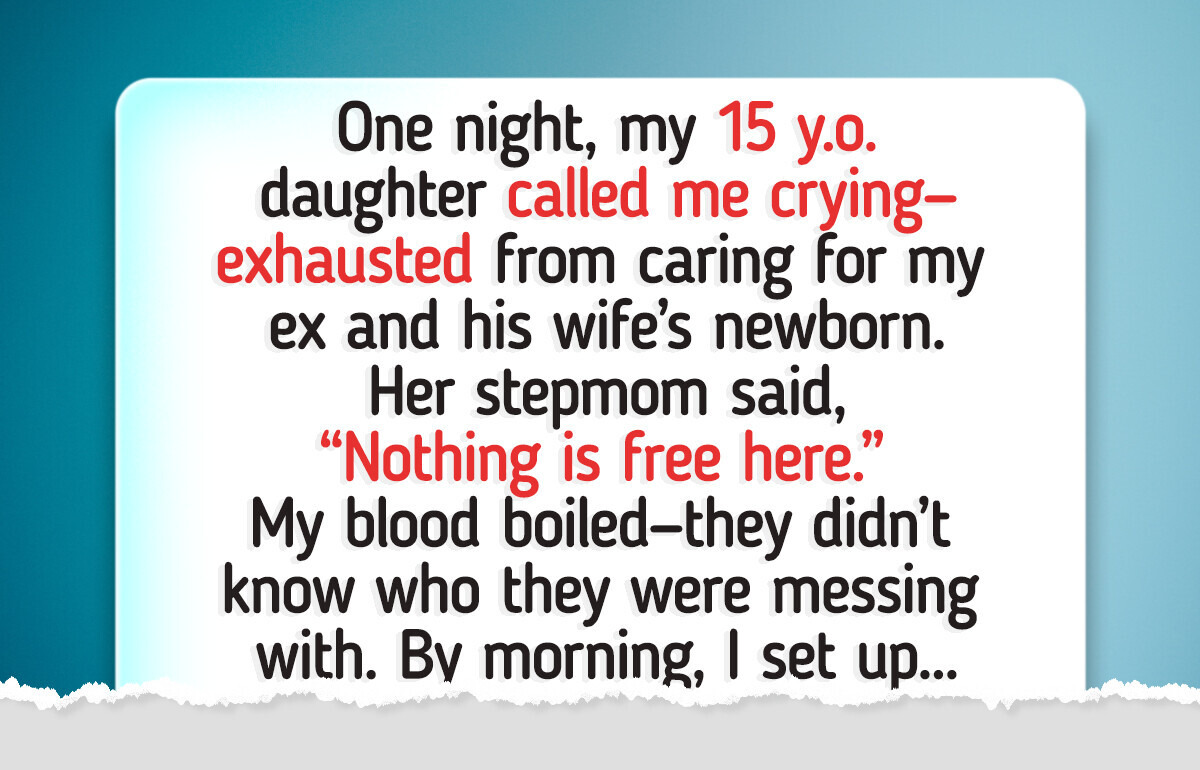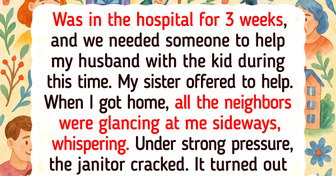I Refused to Give My Inheritance to My Kids—They Plotted Against Me


Parenting after divorce is rarely straightforward, especially when a teenager is caught between two households with very different rules and values. In blended families, lines can blur quickly, and without firm boundaries, it’s often the child who ends up paying the price. That’s exactly what happened to one mother who reached out to Bright Side after learning her 15-year-old daughter was being treated more like unpaid help than family. Expected to care for her father’s newborn with his new wife, the teen was stretched thin, juggling school, exhaustion, and guilt, until her mother stepped in and changed everything.

Thank you, Melissa, for sharing your story. We understand how painful it must be to watch your daughter placed in a role she never agreed to—and how hard it is to balance protection with peace. Below, we’ve put together four thoughtful pieces of advice to help you navigate this situation with care—prioritizing your daughter’s well-being while setting firm, healthy boundaries, without escalating conflict.
After everything that happened, your daughter may be feeling torn, caught between loyalty to her father and the discomfort of being put in an unfair situation. She might not even know how to express that her boundaries were crossed. Start by creating a calm, judgment-free space where she feels safe to share. You could say something like, “I know things have been confusing lately. I just want to hear how you’re feeling—no pressure.” It’s important that she doesn’t feel like she has to take sides.
Avoid steering the conversation toward solutions too quickly. Instead, focus on validating her experience. When she realizes you’re not there to fight or blame, but simply to understand, she’ll feel more secure. That emotional safety is what lays the groundwork for rebuilding trust—and eventually, for helping her understand that clear parenting boundaries are about protecting her, not punishing anyone.
Your daughter might be 15, but that doesn’t mean she automatically knows how to assert herself—especially if she’s been made to feel like “the helper” instead of just a kid. In environments where adults expect obedience or gratitude, saying no can feel like a betrayal. Reassure her that speaking up isn’t being rude or disrespectful—it’s a healthy, important way to care for her own well-being.
Try practicing a few calm, confident phrases together, like: “I don’t feel okay being left alone with the baby” or “I want to help sometimes, but I also need rest and time for school.” Learning to speak from her needs, with kindness, can shift the dynamic without creating conflict—while building lifelong confidence in setting personal boundaries.
Instead of viewing this as a clash over parenting styles, reframe the issue as a mismatch in expectations. Calmly initiate a conversation with your ex that focuses on defining roles within both households—especially your daughter’s. Use this opportunity to introduce healthy parenting boundaries that reflect her age, needs, and emotional limits.
Clarify that while pitching in occasionally is fine, being responsible for a newborn is not appropriate. Offer practical compromises, like limiting tasks to specific times or ensuring they never interfere with school or rest. When both households commit to healthy, consistent boundaries, your daughter feels supported—and protected—no matter where she is.
If your daughter is repeatedly put in situations that undermine her well-being, it may be time to reassess her living environment. Ask her gently whether she feels more emotionally secure and supported in your home—even if only part-time. Her comfort should be a guiding factor.
If changes to your custody agreement seem necessary, consult a family lawyer to understand your options. And if relocation isn’t feasible, look into other support systems—like therapy or school counseling—to help her process and manage the stress. Ultimately, if parenting boundaries can’t be respected in one household, it’s okay to take steps to create a healthier one elsewhere.
Co-parenting means walking a fine line—where both parents are equally responsible for their child’s emotional and physical well-being. In this article, a reader shared how her ex prioritized his new family at the expense of their son, until she stood her ground and made sure there were real consequences. Julia’s experience highlights why clear parenting boundaries are not just helpful—they’re essential when a child’s needs are being overlooked.











